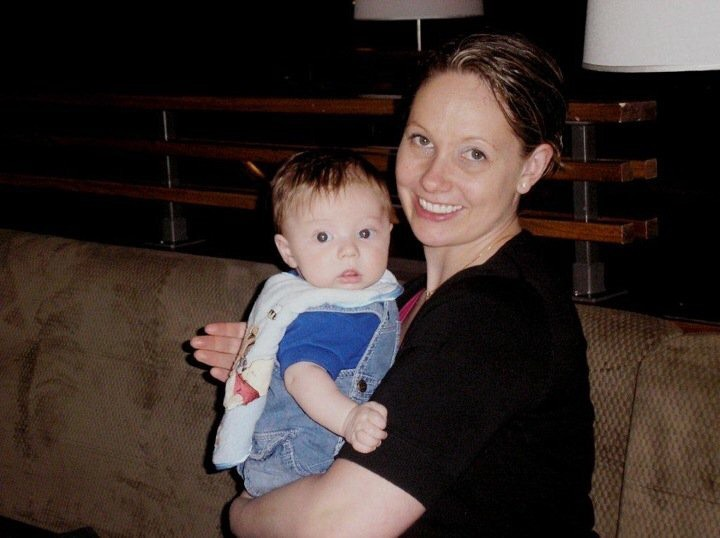Nov. 15, 2017
Public health nurse launches study to improve newborns' sleep

You are a new parent and face it — fatigue is part of your life. But for some parents, the degree of sleeplessness is concerning. After four months, some infants are still not sleeping well. And this sleep deprivation may cause resentment, confusion and a lot of exhaustion for parents and newborns.
Elizabeth Keys is an expert on infant sleep. She’s a young researcher at the Alberta Children’s Hospital Research Institute (ACHRI) in the Cumming School of Medicine and a predoctoral trainee in the Canadian Child Health Clinician Scientist Program (CCHCSP). The program is supported by a partnership of children’s hospitals across Canada. Only a few health clinicians are accepted into the program each year, and Keys was fortunate to be one of them.
Parents may miss baby's important signals of fatigue
As a registered nurse and PhD student in the Faculty of Nursing, Keys recently launched a research initiative called Play2Sleep, a program to provide innovative interventions to improve infant sleep. “Babies give signals when they are tuckered out.” says Keys. “Parents can misunderstand or misread these signals, and instead, unintentionally lead babies into a state where it’s difficult to resettle into drowsiness and rest.”
Yes — babies give signals. It can be a slight face turn, a hand movement over eyes, or a frown. Not much to go on. But the message from the baby is "I’m tired." Interestingly, research shows that babies give clearer instructions to fathers than to mothers. If either parent misses the signals, babies can accelerate into a fussing and crying state that results in a longer period to calm down and poorer sleep afterwards.
Keys has lived this scenario. She has two children and the first was a poor sleeper. It became such a concern, she sought help at community clinics but could find little advice based on scientific evidence. “I first got interested in infant sleep when my first-born had trouble. I was in a fog and so tired. I reached out for help, but nothing was available that was really useful so I just set out to do something about it.”
Karen Benzies is the associate dean of research at the Faculty of Nursing. “Sleep is so crucial to brain development for baby and a healthy attitude for moms and dads, so this research is very important."

Elizabeth Keys and her baby five years ago when she became interested in sleep research.
Elizabeth Keys
Infant-parent study is open to Calglarians
Keys is now mid-way through her study, Play2Sleep. She’s enrolling 60 families. The goal is to provide personalized interventions for moms and dads who have difficulty reading their infant’s signals. For example, she says some families may need more direct instructions on how to interact with their baby to see the visual clues.
Keys needs more families to join and is looking for parents of four- to five-month-old babies waking more than three times a night, or awake for more than 60 minutes a night, or sleeping less than nine hours in a 24-hour period. The enrolment is open with information at play2sleep@ucalgary.ca.
Excellent training in Canadian Child Health Clinician Science Program (CCHCSP)
The CCHCSP program enhances learning for allied health professionals so they can provide evidence-based practice in the community. Keys, a public health nurse, is focused on precision medicine or helping to provide unique interventions based on individual family needs. ACHRI is part of the CCHCSP partnership and one of the institutes in Canada that supports the required training.
Keys is supervised by Karen Benzies, the associate dean of research at the Faculty of Nursing, with additional supervision from Val Kirk, medical director of the Alberta Children’s Hospital (ACH) sleep clinic. For more information on how ACHRI can support your training, please visit the ACHRI Research Training Platform.
The Brain and Mental Health research strategy positions University of Calgary researchers to unlock new discoveries and treatments for brain health in our community by working in interdisciplinary teams.
The next generation of clinicians and scientists at ACHRI are supported by generous community donations through the Alberta Children’s Hospital Foundation.
